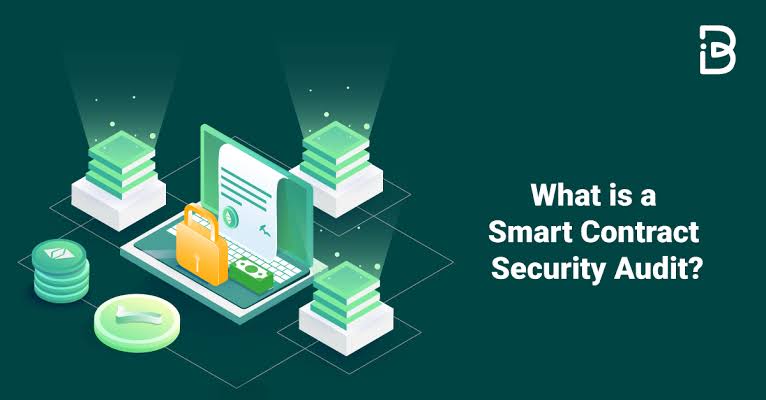An extensive evaluation of a blockchain network’s internal operations with the intention of identifying vulnerabilities that hackers might exploit is known as a blockchain security audit. It means scrutinising every aspect of the network, including smart contracts and the robustness of the network architecture.
During a security audit, cybersecurity experts carefully review the blockchain’s code. Finding and fixing any systemic vulnerabilities is the primary objective. Even if it contributes to the protection of user cash, it still cannot guarantee total safety.
Projects can approach the highest level of security with the assistance of a qualified auditor. But the benefits of a blockchain security audit go far beyond just finding and resolving issues.
Organisations can gain the trust of their users and position themselves as industry leaders by taking action against potential threats. In today’s more connected world, trust is more valuable than ever, and gaining it starts with a well-executed security audit.
What Is the Significance of a Blockchain Security Audit?
Although blockchains can be very transparent and tamper-proof, there are always security vulnerabilities. Projects may contain undiscovered security holes that could be exploited to cause large asset losses. This is when security audits become important.
1. Preventing Assaults and Exploits: In blockchain projects, identifying flaws and addressing them before attackers can exploit them is the primary objective of security audits. These checks guard against potential fraud and hacking by being proactive.
2. Preserving Code Integrity: Since blockchain projects are often made available as open-source, the code is visible to all. While this promotes transparency, it also makes any weakness in the code easily accessible to hackers.
3.Building User Trust: User trust plays a critical role in the adoption and success of blockchain applications. Users need to trust that their transactions and data are secure. Blockchain initiatives build confidence by regularly conducting security audits and fixing vulnerabilities discovered, demonstrating their commitment to user safety.
4.Regulation Compliance: As blockchain technology gains traction, regulatory organisations are establishing more stringent guidelines for data security and protection. Blockchain projects are guaranteed to adhere to these changing regulations through the conduct of security audits.
Long-Term Stability and Reliability: Recurring security audits contribute to a blockchain project’s continued stability and dependability. They make sure that the security precautions in place are updated and strengthened in line with the project’s growth.
Where to get a Blockchain Security Audit
Cybersecurity trends are shifting away from “testing in production” and towards bringing in outside auditing organisations to carefully review the codes before release. Due to this, many Web 3.0 cybersecurity companies have expanded the services they provide to include bug bounty programmes and on-chain monitoring solutions.
For instance, in addition to post-deployment security monitoring solutions like Hacken Extractor, Hacken.io now provides audits. Additionally, it manages HackenProof, one of the largest bug bounty programmes on Web3, which employs more than 20,000 carefully chosen programmers. Depending on the security requirements of the project, these optional services provide more support and help.
How to Choose a Blockchain Auditing Firm
Before selecting a Web 3.0 auditing company, review its prior audits. The range and standing of the audited projects serve as indicators of the auditor’s calibre. This is simply because popular projects are the targets of choice for hackers.
While many auditors are proficient in auditing Ethereum smart contracts, not all of them have experience with other blockchains, like Solana, Polygon, Avalanche, Fantom, and BNB. Complexity arises from the many chain architectures that are compatible with EVMs. Hacken.io is a website that specialises in three programming languages: Move, Solidity, and Rust. Other companies may not have the same level of experience.
Auditors may conduct audits that are more or less extensive, depending on what they and their clients agree upon. More in-depth audits are better, even though they cost more and take longer.
Because of this, the quality of the report is equally essential. Every issue discovered throughout the investigation should be included in a thorough audit report, along with confirmation that the project was successful in fixing it later. It ought to contain practical suggestions for lowering the dangers as well. Even though smart contract audit reports are technical in nature, well-organized and understandable presentations increase their effectiveness.
In conclusion, auditing blockchain security is a significant undertaking that requires caution. It helps companies find potential vulnerabilities and assess if their security measures meet the industry’s growing security standards. Furthermore, when audits are carried out by respectable firms, the confidence of the public and possible investors is substantially bolstered.


